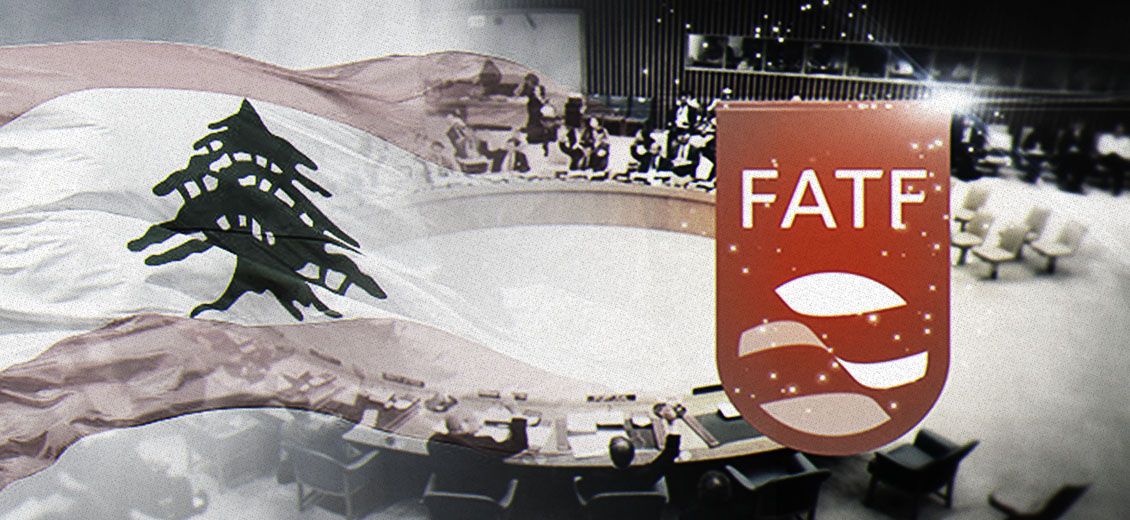
Lebanon has been officially placed on the Financial Action Task Force (FATF) grey list, as announced on Friday. This expected decision came as no surprise.
“Of course, we are aware of the extremely dramatic situation in Lebanon, currently,” said Mexican Gafi President Elisa de Anda Madrazo, following the FATF meeting in Paris. “I would like to make it clear that Lebanon's grey-listed status should not hamper the relief efforts,” she added.
“The FATF, she emphasized, is not calling for increased diligence, or countermeasures, and we are working to ensure that humanitarian aid channels remain open” for this country.
Madrazo “regretted the loss of human life” in the region and assured that “some flexibility” had been granted to the country for the deadlines of its action plan.
Practically, there is no reason to panic. Money transfers to and from Lebanon are anticipated to remain unaffected, and the exchange rate of the Lebanese pound against the dollar is likely to stay stable.
However, fees for international banking transactions will rise, and processing times for banking operations will be extended.
Regarding the exchange rate, the Central Bank of Lebanon (BDL) is currently controlling the money supply in LBP, which helps limit any potential volatility.
Being on the “grey list” does not imply a total disruption of transactions; several Western countries are also included on this list while maintaining robust financial exchanges.
For reference, Lebanon was placed on the “blacklist” of non-cooperative countries in 2000. However, the passage of the LAB/CFT law (Law Against Money Laundering and Combatting the Financing of Terrorism) in 2001, along with its accession to the Egmont Group—an international consortium of anti-money laundering units for member states—enabled Lebanon to be removed from that list in 2022.
Grey and Black Lists
According to Nadim Sabeh, CEO of First Financial Markets, Lebanon has long been in violation of the FATF's grey list requirements. Until now, the delay in its designation was considered a “purely political” decision due to a political and security status quo supported by the United States. However, Sabeh asserts that Hezbollah's recent opening of the southern front and the subsequent military escalation have disrupted this balance.
The FATF classifies countries based on their level of cooperation in combating money laundering and terrorist financing, employing a specific set of forty criteria.
When a jurisdiction is placed under enhanced scrutiny or on the “grey list” by the FATF, it indicates the country’s commitment to promptly address the identified strategic deficiencies within an agreed timeframe, all while being subject to increased monitoring.
In other words, Lebanon must strengthen its internal procedures, particularly in the areas of customs, justice, anti-corruption measures and non-financial professions such as notaries and others. This includes tightening oversight on cash transactions and revitalizing the banking system.
The World Bank estimated the informal economy at $9.9 billion, which accounts for 45.7% of GDP in 2022.
In this context, it is important to note that as of June 2024, 21 countries were placed on the “grey list,” including Bulgaria, Burkina Faso, Cameroon, Croatia, Congo, Haiti, Kenya, Mali, Monaco, Mozambique, Namibia, Nigeria, the Philippines, Senegal, South Africa, South Sudan, Syria, Tanzania, Venezuela, Vietnam and Yemen. In contrast, the “blacklist” includes countries with significant and serious deficiencies in combating these activities, such as North Korea and Iran.
Efforts of the BDL
That being said, the BDL initiated measures to rectify, to some extent, the cash-dominated nature of the economy. A notable step is Circular No. 165, which permits banks to open accounts in both dollars and LBP, issue payment cards and revert to available payment methods within the banking sector. However, this circular has not been accompanied by any legislative support to facilitate these processes.




Comments